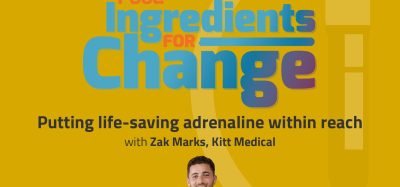Something’s brewing
- Like
- Digg
- Del
- Tumblr
- VKontakte
- Buffer
- Love This
- Odnoklassniki
- Meneame
- Blogger
- Amazon
- Yahoo Mail
- Gmail
- AOL
- Newsvine
- HackerNews
- Evernote
- MySpace
- Mail.ru
- Viadeo
- Line
- Comments
- Yummly
- SMS
- Viber
- Telegram
- Subscribe
- Skype
- Facebook Messenger
- Kakao
- LiveJournal
- Yammer
- Edgar
- Fintel
- Mix
- Instapaper
- Copy Link
Posted: 5 November 2020 | Mecca Ibrahim | No comments yet
Work during Covid-19 had been an intense and unpredictable period for the brewing industry. Here, Mecca Ibrahim speaks to several brewers about their experiences – good and bad.
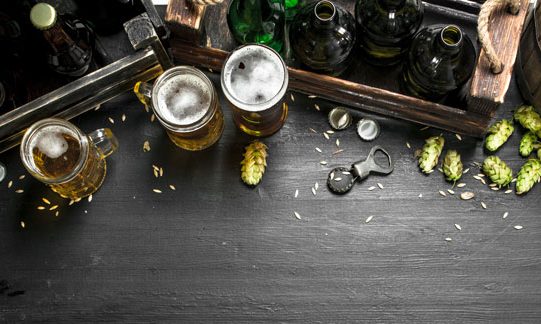

Louisa Ziane is COO of Toast Ale, an award-winning craft beer company that uses surplus fresh bread that would otherwise be wasted
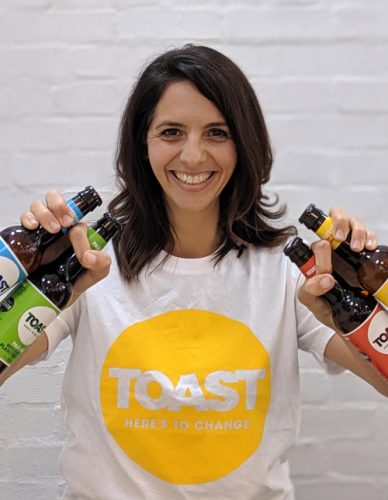

But it was a great opportunity to talk directly to our customers and to get to know them better. We have an incredible community of ‘companions’ who continued to buy our beer though toastale.com and sent us messages of support. Thanks to them, we were able to continue our mission to help fix the food system, while helping people in need.
We set up a Meal Deal, funding a meal for a vulnerable person with every beer purchased. In total, our customers funded over 46,000 meals, made with surplus ingredients that would otherwise have been wasted. Meanwhile, our furloughed team also volunteered for the charities distributing the meals.
We lost our main bread supplier, Adelie Foods (we brew with the heel end of loaves not used by the sandwich industry). Sadly, it went into administration as a direct result of the Covid crisis, but we were fortunate to find an alternative supplier fairly quickly. It was a sad moment, however, as we had worked with them for many years.
We brew our beer in partnership with Hepworth Brewery in Sussex. Like all other breweries, it faced huge uncertainty in customer demand, while also having limited access to the brewery production due to lockdown and social distancing measures. We’ve worked closely with them to be flexible with brewing schedules and they have been fantastic.
We are still feeling the effects of the unpredictability, however. For example, as breweries are kegging less beer and instead packaging for retail, there has been huge pressure on canning facilities and the availability of aluminium cans. If you spot our usually silver cans in white or black, that’s why!
It’s been an intense and unpredictable period. Before the pandemic, approximately 65 percent of our sales were from 28 restaurants, bars, pubs and events. In March those sales came to a halt. We also supply Waitrose, Ocado, Tesco and Co-op, but they were forced to prioritise essential food supplies so orders with us stopped temporarily. We had to very quickly adapt our offering, becoming an ecommerce-led business. This meant changing our entire business, including setting up a new operating model and marketing strategy. Sadly, we also had to put many of the team on furlough, which also increased pressure on the remaining team.
But it was a great opportunity to talk directly to our customers and to get to know them better. We have an incredible community of ‘companions’ who continued to buy our beer though toastale.com and sent us messages of support. Thanks to them, we were able to continue our mission to help fix the food system, while helping people in need.
We set up a Meal Deal, funding a meal for a vulnerable person with every beer purchased. In total, our customers funded over 46,000 meals, made with surplus ingredients that would otherwise have been wasted. Meanwhile, our furloughed team also volunteered for the charities distributing the meals.
We lost our main bread supplier, Adelie Foods (we brew with the heel end of loaves not used by the sandwich industry). Sadly, it went into administration as a direct result of the Covid crisis, but we were fortunate to find an alternative supplier fairly quickly. It was a sad moment, however, as we had worked with them for many years.
We brew our beer in partnership with Hepworth Brewery in Sussex. Like all other breweries, it faced huge uncertainty in customer demand, while also having limited access to the brewery production due to lockdown and social distancing measures. We’ve worked closely with them to be flexible with brewing schedules and they have been fantastic.
We are still feeling the effects of the unpredictability, however. For example, as breweries are kegging less beer and instead packaging for retail, there has been huge pressure on canning facilities and the availability of aluminium cans. If you spot our usually silver cans in white or black, that’s why!
Sales via our website shot up as drinkers enjoyed the convenience of ordering ‘takeaway’ beer. The majority of our orders were for our core range of four styles: Lager, Pale Ale, Session IPA and American Pale Ale.
For Toast, new products rely on collaborative efforts, but given the pressure on the entire F&B industry, we had to put this on pause. We are now excited to be working with Warburtons to develop a new take on the crumpet beer collaboration we did earlier this year.
There’s a continued trend for people to want brands to share their personal values. With people spending more time online, they are able to search for those brands and delve deeper by browsing their websites or engaging with them on social media. Sustainability is particularly important. Google reported that between March and May 2020, search interest in ‘How to live a sustainable lifestyle’ increased by more than 4,550 percent.
We have received an increase in the number of enquiries from brewers wanting to learn about circular economy principles in general, and the use of surplus fresh bread in particular. In fact, it’s looking like a very big craft beer company will be adding bread to their mash tuns in the near future!
Covid-19 has returned focus to local suppliers, as people have been getting to know and enjoy beers on their doorsteps. This is consistent with more sustainable distribution models, with less ‘beer miles’ to travel. For example, Toast now works with Pedal Me to deliver all website orders by bicycle courier in the London area.
The short delivery route ‘direct to drinker’ also opens up new sustainable packaging formats, with refillable growlers no longer just an option for in-the-know craft beer fans. Toast is available on tap at Waitrose Unpacked where shoppers can pick up a growler or bring their own, and we also offer the growler service via partners such as Pedal Me, Too Good To Go and Karma.
Emma Heal is Managing Director of Lucky Saint, an unfiltered low-alcohol lager
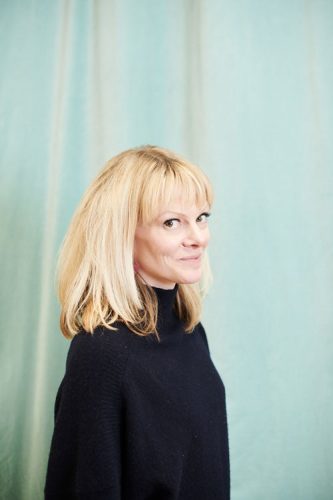

To ensure we were meeting the consumer in their new reality, during lockdown we pivoted all our branded content and creativity to focus on the at-home drinking occasion.
We transformed our emails to consumers, making them more relatable to people’s lockdown experiences; we featured at-home recipes and focused on paid social and digital marketing. Anecdotal feedback showed us that people were looking for a drink to mark the moment between working from home and relaxing at home, but didn’t want to suffer the next day hangover; that’s where a great tasting, refreshing, alcohol-free lager comes in. By the time lockdown started to lift, consumers had made Lucky Saint part of their weekly routine.
Our incredible brewery, which is based in Bavaria, really rose to the challenge and kept the beer coming so our customers could keep their fridges full. Don’t get me wrong, there were challenges, and a booking slot in Amazon’s depot became the hottest ticket in town, but the whole team was dedicated to thriving in this unique situation and worked hard to make sure we never ran out of stock.
Our website sales increased at luckysaint.co rising by a staggering 300 percent month-on-month. It seemed as if people were searching for that treat occasion at home, as they were not able to mark the end of the working day with a drink with friends or a meal out. It also became clear that rewarding every lockdown day with a glass of wine wasn’t sustainable, so people started to look for healthier ways to reward themselves, which arguably motivated them to try new things such as alcohol-free options.
Launching new releases on our web shop really invites traffic and purchases. I think the UK will see a continued commitment to online purchases from consumers, whether it be direct from the brewery or from retailers. I also believe the trend towards ‘small pack’ will remain.
No/low is here to stay. During lockdown, Lucky Saint became the second best-selling lager on Amazon, which we think shows that people are looking for great-tasting alcohol-free alternatives to enjoy throughout the week at home.
We also became the first alcohol-free beer producer to gain British Beer & Pub Association membership. We expect these new habits developed at home to infiltrate the ‘on-trade’ market.
We launched on draught in January and the demand surprised everyone, with average sales varying from at least one 30-litre keg a week, to six kegs a week in some venues. We are really excited to support our friends in the on-trade with kegs, as consumers start to venture out again.
Sophie De Ronde is a Brewing Technologist and Brewer at Burnt Mill Brewery
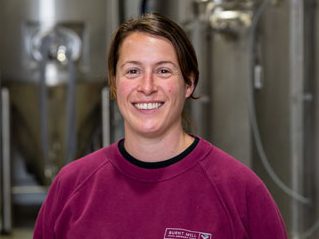

Most of our suppliers have been very helpful and supportive, providing specific payment terms and elongating certain aspects of contracts. I can’t say much for the onward beer sales supply chains; however, we are starting to see a small pickup in some wholesale business again.
Ellie Webb is the founder of Caleño Drinks, a tropical infusion of juniper, citrus and spice botanicals, named No.1 in “5 of the best” non-alcoholic spirits


Our supply chain during Covid-19 was incredibly important; without it, we would not have been able to distil and bottle Caleño or send out deliveries.
We already have great relationships with our suppliers, so we started by ensuring they were safe and well and sought to understand how we could work to best support their structures. Our bottlers had to close for a period, so we moved our production cycle to accommodate this closure and made workarounds with other suppliers to ensure we could still produce and keep selling.
One of the key trends we observed during lockdown was people really taking care of their health and wellness. We saw people taking part in virtual workouts and being mindful of their mental well-being. We sought to understand the role we could play in all this, and to me it was incredibly clear: Caleño could help people maintain a healthier lifestyle and avoid drinking to excess. Everyone enjoys that ritual when you get to the end of a hard day, but a G&T every evening can start to become an unhealthy habit.
Below are two initiatives we developed over lockdown to help our customers enjoy a healthier day; promoting them in collaboration with key food brands and work-out partners:
- Have a ‘happy’ lunch-hour: take some time away from your desk to enjoy an alcohol-free Caleño & Tonic drink
- enjoy alcohol-free Caleño cocktails on your Mon/Tues/Weds nights.
About the author
Mecca Ibrahim
Mecca was formerly Head of Marketing & Social Media at Great British Chefs – the UK’s fastest growing food website. After almost eight years in that role, Mecca (who everyone calls Mex) co-founded ‘Women In The Food Industry‘ – an initiative that shines a spotlight on the work of inspiring women in the industry. Mex has also set up a freelance social media, marketing and content creation agency, and is a member of the Guild of Food Writers. Her expertise includes sustainability, food entrepreneurs, equality within the food industry and ethical eating.
Issue
Related topics
Beverages, COVID-19, Food Waste, Health & Nutrition, New product development (NPD), Product Development, Research & development, retail, Supermarket, Supply chain, Technology & Innovation, The consumer
Related organisations
Burnt Mill Brewery, Caleño Drinks, Co-op, Lucky Saint, Ocado, Tesco, Toast Ale, Waitrose, Warburtons




